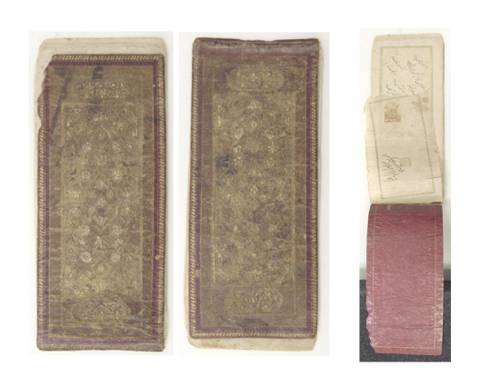
FAQ About The Influence of Spoken Word on Middle-Eastern Poetry

What is spoken word poetry?
Spoken word poetry is a performance art that combines the elements of writing and speech. It is characterized by its focus on the oral delivery of a poem, emphasizing rhythm, intonation, and vocal expression. Unlike written poetry, spoken word poetry often involves live performance in front of an audience, and it may include personal, political, or social themes.

How did spoken word poetry originate?
Spoken word poetry originated as a form of storytelling, deeply rooted in oral traditions. It has been influenced by a range of cultural and artistic movements, including African griots, Beat poets of the 1950s and 60s in the United States, and the culture of hip-hop. It grew in prominence through poetry slams and open mic events, becoming a platform for marginalized voices and contemporary issues.

How has spoken word poetry influenced contemporary Middle-Eastern poetry?
Spoken word poetry has significantly influenced contemporary Middle-Eastern poetry by introducing new forms of expression and performance. It has invigorated the poetic landscape by encouraging poets to address current social, political, and cultural issues directly. The emphasis on orality and performance has also revived interest in traditional oral poetry forms within the region, blending them with modern themes to create a new hybrid style.

In what ways has spoken word poetry transformed the themes of Middle-Eastern poetry?
Spoken word poetry has transformed the themes of Middle-Eastern poetry by providing a platform for poets to explore and express themes of identity, resistance, and social justice. Poets often tackle contemporary issues such as gender equality, political oppression, and cultural identity, thereby engaging in social discourse and offering critique and commentary on modern society.

What role does spoken word play in social discourse in the Middle East?
In the Middle East, spoken word poetry plays a crucial role in social discourse by providing a medium for expression and dialogue on pressing issues. It empowers individuals and communities to vocalize their experiences and challenges, fostering an environment of awareness and engagement. Poets often use spoken word to challenge stereotypes, advocate for change, and elevate marginalized voices, contributing significantly to cultural and social conversations.

How does spoken word poetry differ from traditional Middle-Eastern poetry forms?
Spoken word poetry differs from traditional Middle-Eastern poetry forms primarily in its mode of delivery and its thematic focus. While traditional poetry in the region often follows specific structures and formal elements, spoken word is more flexible and emphasizes performance and personal expression. It also tends to address contemporary issues more directly, leveraging the immediacy of live performance to connect with audiences on a personal level.

Can you name some prominent Middle-Eastern spoken word poets?
Prominent Middle-Eastern spoken word poets include Hala Alyan, a Palestinian-American poet known for exploring themes related to identity and diaspora, and Emi Mahmoud, a Sudanese-American poet and activist who addresses issues of displacement and resilience. These poets gain recognition for their compelling performances and ability to articulate complex themes through spoken word.

What is the historical relationship between oral poetry traditions and spoken word poetry in the Middle East?
The historical relationship between oral poetry traditions and spoken word poetry in the Middle East is one of continuity and evolution. Oral traditions have been an integral part of the cultural fabric in the region for centuries, conveying stories, history, and social values. Spoken word poetry draws inspiration from these traditions, revitalizing them with contemporary themes and performance techniques, thus bridging the past and present poetic expressions.

How has technology influenced the spread of spoken word poetry in the Middle East?
Technology has greatly influenced the spread of spoken word poetry in the Middle East through digital platforms and social media. These tools have allowed poets to reach larger audiences beyond their geographical location, fostering global connections and collaborations. Video sharing sites and digital publications have democratized access to poetry, enabling more voices to be heard and bringing greater visibility to the spoken word movement in the region.

Are there notable events or festivals dedicated to spoken word poetry in the Middle East?
Yes, there are several notable events and festivals dedicated to spoken word poetry in the Middle East, such as the Dubai Literature Festival, which often includes spoken word performances. Additionally, various local poetry slams and open mic events throughout the region provide platforms for emerging and established poets to share their work and engage with diverse audiences.

What impact has spoken word had on young poets in the Middle East?
Spoken word has had a profound impact on young poets in the Middle East by offering them a dynamic platform to express their ideas and challenge societal norms. It has inspired a new generation to engage with poetry as a form of activism and personal expression, often leading to cross-cultural dialogue and influencing other art forms. Young poets find in spoken word a powerful medium to explore their identity and contribute to societal discourse.

How do cultural themes manifest in Middle-Eastern spoken word poetry?
Cultural themes in Middle-Eastern spoken word poetry often manifest through explorations of identity, displacement, and cultural heritage. Poets frequently touch upon their personal experiences with migration, tradition, and modernity, creating a nuanced dialogue about cultural clashes and continuities. Through these themes, spoken word poetry encourages reflection and fosters a deeper understanding of the diverse cultural fabric in the region.

What challenges do Middle-Eastern spoken word poets face?
Middle-Eastern spoken word poets face various challenges, such as censorship, limited exposure due to political or social constraints, and language barriers in reaching global audiences. Despite these obstacles, many poets continue to find ways to express themselves and have their voices heard, often working through community support and digital platforms to overcome these barriers.

How does spoken word poetry contribute to identity formation among Middle-Eastern poets?
Spoken word poetry contributes to identity formation among Middle-Eastern poets by providing a space for introspection and exploration of personal and collective identities. It allows poets to articulate their experiences and perspectives on heritage, religion, and modern life, fostering a sense of belonging and self-awareness. Through spoken word, poets can examine and redefine their identities in the context of a rapidly changing world.

Are there specific themes unique to Middle-Eastern spoken word poetry?
While Middle-Eastern spoken word poetry shares universal themes with the broader spoken word community, it also features unique themes related to the specific socio-political context of the region. These include issues of displacement, conflict, and resistance, as well as examinations of cultural and religious identity. These themes are deeply rooted in the region's history and current realities, offering unique perspectives through artistic expression.

How does spoken word poetry in the Middle East engage with traditional poetry forms?
Spoken word poetry in the Middle East often engages with traditional poetry forms by incorporating classical styles, rhythms, and themes into contemporary performance. This fusion highlights the poets' cultural heritage and enriches the modern spoken word scene. By blending traditional elements with modern themes, poets create a dynamic interaction between past and present, appealing to diverse audiences.

Can spoken word poetry be a vehicle for political change in the Middle East?
Yes, spoken word poetry can be a powerful vehicle for political change in the Middle East. By addressing pressing social and political issues, poets can raise awareness and foster discussion around topics that might otherwise be suppressed. Through their performances, poets can inspire activism, challenge governmental policies, and provide alternative narratives that encourage change and empower communities.

How do Middle-Eastern spoken word poets address language diversity?
Middle-Eastern spoken word poets address language diversity by experimenting with multilingual performances and incorporating various dialects and languages, such as Arabic, Farsi, Hebrew, and English, among others. This linguistic diversity reflects the poets' identity, resonates with diverse audiences, and helps bridge cultural gaps. It also highlights the rich tapestry of linguistic traditions present in the region.

What future trends might we see in the development of spoken word poetry in the Middle East?
Future trends in the development of spoken word poetry in the Middle East may include increased digital integration, greater cross-cultural collaborations, and the continued fusion of traditional and contemporary forms. As technology advances, we may see more virtual events and use of virtual reality to enhance live performances. Additionally, as social movements grow, spoken word may increasingly become a platform for youth activism and global dialogues on human rights and cultural identity.
